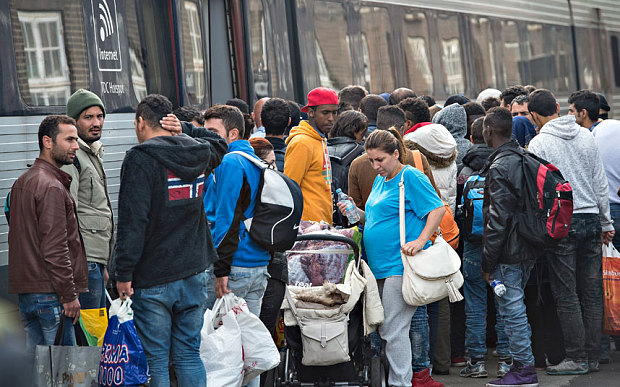New Immigration Law Passed In Denmark
A contentious immigration law was passed by the parliament of Denmark allowing the seizure of cash and valuables from refugees by authorities. The new measure is part of an immigration bill that may be approved after a parliamentary majority was reached by the government earlier in the month.
These tendencies for opposing illegal immigration in Europe have been subjected to numerous discussions. The implementation of the new law may be limited to Denmark, but other European countries may be affected by it in the future. While the government considered the passing of the law appropriate and was designed to reduce the costs of accepting refugees, critics still do not agree to it.
The Danish government constantly reiterates that the new immigration law is misunderstood outside the country. It was even called the “most misunderstood law” in the history of the country by Prime Minister Lars Løkke Rasmussen. Liberal Party spokesman Jakob Ellemann-Jensen said the government will not take away the jewelry of the reguees.
The Danish Integration Ministry revealed in December that the bill explicitly mentions that the seizure rule is applicable to assets with considerable value. Due to this, foreigners can keep assets required to maintain a simple living standard, such as mobile phones and watchers. Due to this, a minimum amount exempt from the seizure is applicable. The ministry added that assets with sentimental or personal value will not be seized unless they have considerable value.
The United Nations High Commissioner for Refugees or UNHCR said the law may promote fear and xenophobia as well as other restrictions that can reduce asylum space around the world and put refugees at risk. The decision was criticized by Stephane Dujarric, spokesman of Secretary-General Ban Ki-moon of the UN.
Dujarric said people who escaped conflict and war and put their lives at risk should be given compassionate treatment and within their rights as refugees.
The Danes themselves were the first critics of the new immigration law, but had little impact at the start. Former chief rabbi of Denmark Bent Melchior said the proposal had a similar character as the persecution of minorities by the Nazis, according to the Times of Israel.

New Immigration Law Passed In Denmark - image credit: telegraph.co.uk
International attention to the bill appeared to compel the government to make changes on how it was worded as well as it public message.
Similar to other countries in Europe, Denmark is aiming to limit the number of refugees it accepts. However, it is also aiming to maintain good relations with other countries. Negative comments were made by commentators from Britain, France and the United States. Due to this, Danish politicians said it was not only the law that was misunderstood, but the nature of the welfare state of Denmark. People should use up all their resource before they can receive benefits in a welfare state.
The same rules are applicable for Danish citizens, but their luggage and clothes are not searched. A similar rule is already in place in Switzerland and one German state, but has not been implemented consistently even with the influx of refugees.
Denmark attempted to limit of refugees and discouraging newcomers as the huge wave of refugees entered Europe. Advertisements were placed by the country in newspapers in Lebanon in 2015. Reasons why coming to Denmark was a bad idea was listed on the ads, one of which was a decrease in social benefits.
The current immigration law came after this, which is considered an attempt to seize the valuables of refugees by the government as they entered Denmark before sending them away.
However, the Danish government disagrees with this view. The country reiterated that it cares for the welfare of refugees and spends money for their health care and education. The asset-seizure law was eventually adjusted by the government.
The statement of the foreign minister of Denmark accusing the opposition of deliberately talking negatively about the new immigration law with foreign media showed that the government is aiming to please voters while maintaining good relations with other governments. In December, a business expert was interviewed by channel TV2 to discuss the threats to the reputation and economy of the country due to international attention given to the proposed law.
An editorial published by the Ekstra Bladet was headlined, “The damage is done!” On the other hand, a liberal-conservative newspaper criticized the debate on the new immigration law since it was concentrating on Denmark even as other countries are doing the same thing.